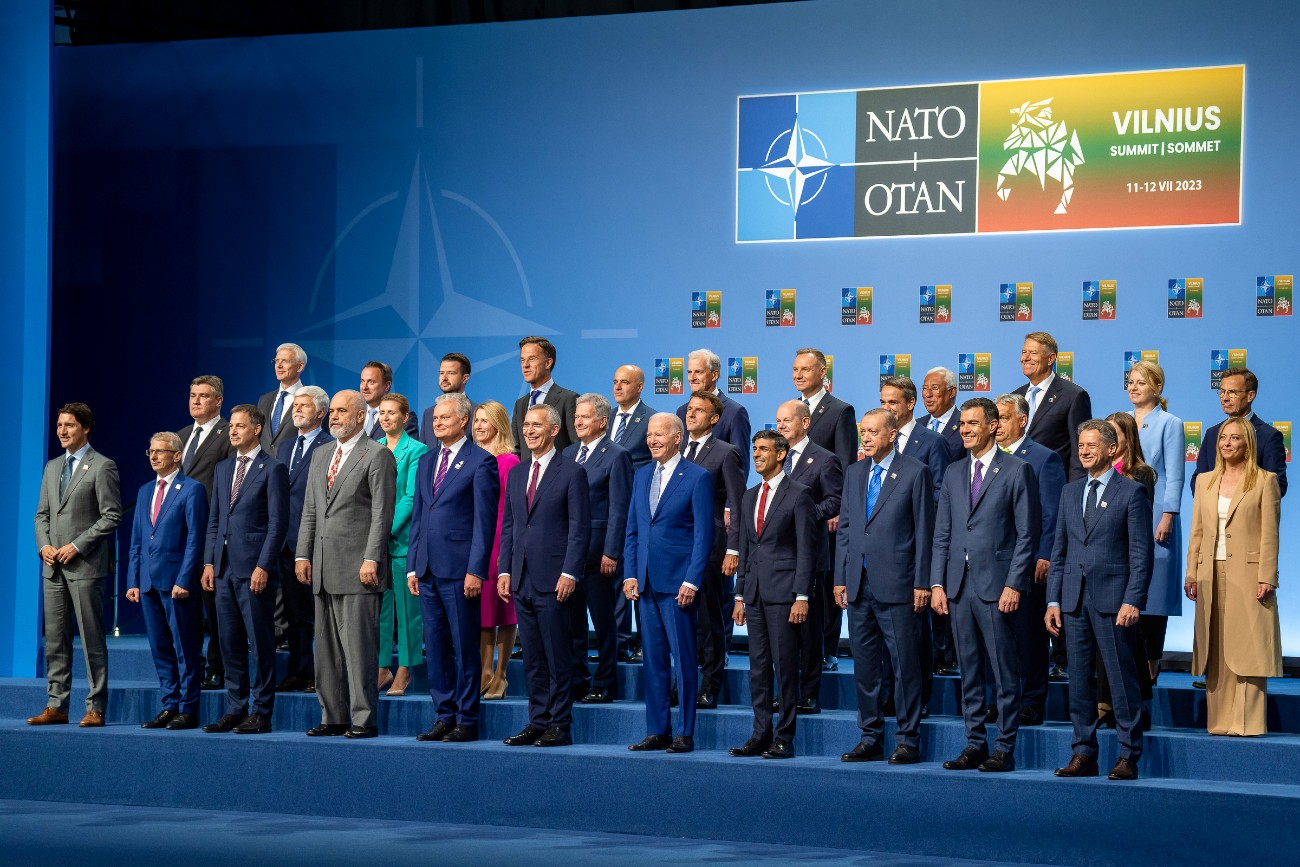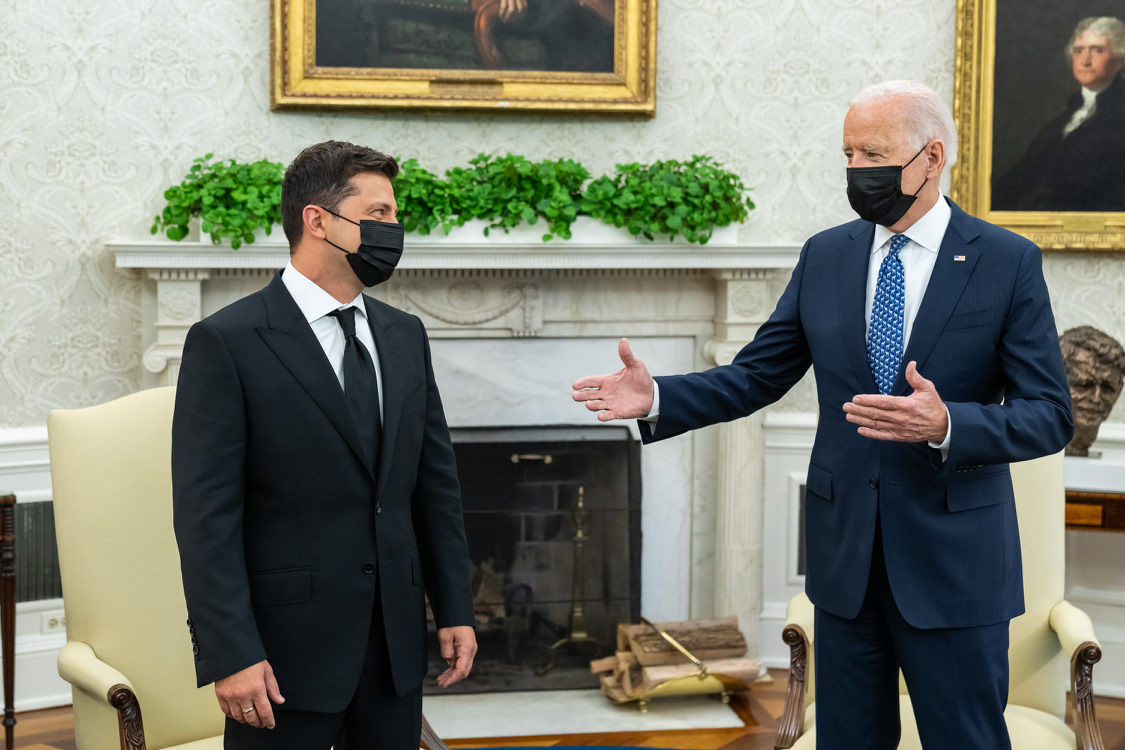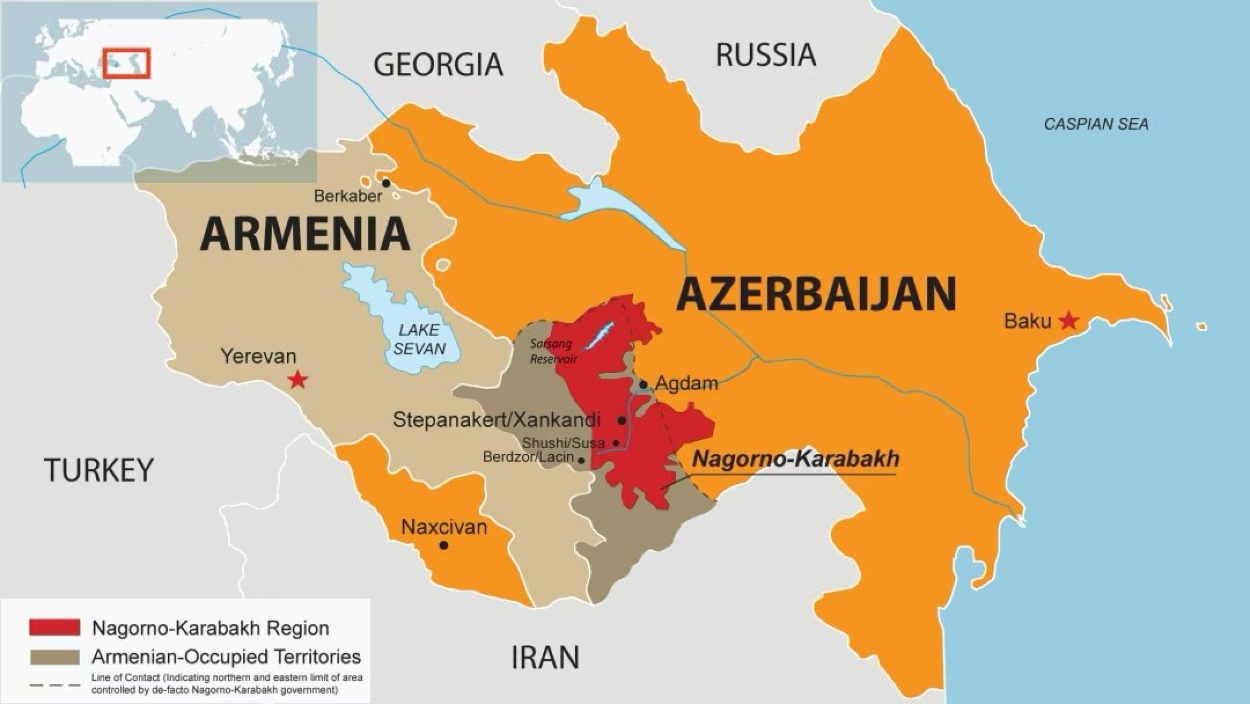Ukraine’s relentless plea to make it a member of NATO resembles that of Georgia, whose accession to the transatlantic and arguably the most powerful military alliance of the world has remained an issue since 2008.
And as in the case of Georgia, Ukraine is being encouraged to keep its hope alive, something that was evident during the latest NATO summit at the Lithuanian capital, Vilnius.
However, in concrete terms, the United States, or for that matter, its European partners such as Germany and France, will not do anything that makes them fight Russia on the actual battlefields.
Instead, they will prefer to commit NATO countries to continue supplying more and more arms and ammunition. And they will create or encourage a narrative that Ukraine will crush Russia militarily and recover all its territories, including Crimea.
Ukraine is told that Russia will be expelled from its naval base at Sevastopol shortly. Similar things they also had told Georgia in the past – that Russia would surrender the Georgia separatist territories.
But, here, too, there is now a problem. Ukraine’s seemingly insatiable thirst for Western arms may remain unquenched as countries like the United States are not in a position to produce enough arms.
That explains, like nothing else, why Washington has been forced to provide Ukraine with inhuman and increasingly obsolete cluster bombs against whose use European NATO countries are committed under an international treaty that they have ratified.
Notwithstanding the bravado they display, the fact remains that NATO countries, particularly their leaders like the United States, Germany, and France, are not prepared to fight Russia directly by granting Ukraine membership (something they have to do unless they make the clause of the alliance that says attack on one is an attack on all infructuous), that too when it is already in the war.
In fact, by making Russia the villain after all its provocations that forced Russia to invade Ukraine (Western support for the color revolutions in Georgia and Ukraine, US intelligence and arming activities in Ukraine for years, the development of US missile defense plans in Poland and the Czech Republic), NATO leadership is hell-bent upon denying Russia any sense of security, its honor, unity, and integrity. This is something no Russian government, whether Putin leads it or not, is going to accept.

As it is, the West seems to have betrayed Russia by expanding NATO after the end of the Cold War and the disintegration of the Moscow-led Warsaw Pact.
Let it be remembered here that Moscow’s principal worry, even at the time of reunification of Germany in 1990 (the USSR had to agree to East Germany’s merger with West Germany to become a unified Germany), was the enlargement of NATO.
While Moscow did concede that a unified Germany would remain in NATO, it had to be assured that NATO would not include in future the Warsaw Pact countries that the Soviet Union led. Warsaw Pact eventually dissolved.
NATO’s Expansion
The declassified documents that are available today clearly show that there were security assurances against NATO expansion to Soviet leaders from James Baker (US Secretary of State), George HW Bush (US President), West German Chancellor Helmut Kohl, French President Francois Mitterrand, and British Prime Ministers Margaret Thatcher and John Major, among others.
The first concrete assurances by Western leaders on NATO began on January 31, 1990, when then-West German Foreign Minister Hans-Dietrich Genscher opened the bidding with a major public speech at Tutzing, in Bavaria, on German unification. He had made clear “that the changes in Eastern Europe and the German unification process must not lead to an “impairment of Soviet security interests.” Therefore, NATO should rule out an “expansion of its territory towards the east, i.e., moving it closer to the Soviet borders.”
In the crucial February 10, 1990, meeting in Moscow between Kohl and Soviet President Mikhail Gorbachev, the West German leader achieved Soviet assent in principle to German unification in NATO by assuring it would not expand to the east.
Before this, on February 6, 1990, when West German Foreign Minister Hans-Dietrich Genscher met with British Foreign Minister Douglas Hurd, the British record showed Genscher saying, “The Russians must have some assurance that if, for example, the Polish Government left the Warsaw Pact one day, they would not join NATO the next.”
It is also on record that Baker tried out the “not one inch eastward” formula with Gorbachev in the February 9, 1990, meeting. He agreed with Gorbachev’s statement in response to the assurances that “NATO expansion is unacceptable.”
Baker assured Gorbachev that “neither the President nor I intend to extract any unilateral advantages from the processes that are taking place” and that the Americans understood that “not only for the Soviet Union but for other European countries as well, it is important to have guarantees that if the United States keeps its presence in Germany within the framework of NATO, not an inch of NATO’s present military jurisdiction will spread in an eastern direction.”
That such assurances were there have also been taken note of by US diplomats like Jack Matlock (the last US ambassador to the former Soviet Union), former US Secretary of Defense Robert Gates, and late veteran George Kenan (the father of “the policy of containment” that the US initiated to resist the then Soviet expansion, marking the onset of the Cold War after the end of the World War II).
Kennan had written in 1997 that “Expanding NATO would be the most fateful error of American policy in the Cold War era. Such a decision may be expected to impel Russian foreign policy in directions, not to our liking.”
Promises Broken
This assurance to Moscow has not been kept. In 1999, Poland, Czechoslovakia, and Hungary – all members of the Moscow-led Warsaw Pact – were allowed to join NATO, despite about 50 military, political, and academic leaders, including Paul Nitze and Jack Matlock, writing to then-President Bill Clinton that this would be “a policy error of historic proportions.”
Clinton’s successor, George Bush, allowed then, in 2004, seven more — including the three Baltic states of Estonia, Latvia, and Lithuania, which had been part of the former Soviet Union — to join as well. President Bush was all set to bring Georgia and Ukraine, both former constituents of the USSR, in 2008. However, the plan was not realized when Russia invaded Georgia.
Soon after Russia invaded Ukraine in February 2022, President Volodymyr Zelenskiy acknowledged on March 15 that Ukraine could not join NATO.
“We’ve heard for years that the door is open, but we also heard that we couldn’t. That’s the truth we much recognize,” Zelenskiy said in remarks seen as abandoning the move to join NATO. He had offered instead to accept becoming neutral if Ukraine received adequate security guarantees from Western nations.

As the Guardian newspaper then reported, even more Ukrainians were willing to accept a formula to ensure that Ukraine “cooperate with NATO but not join.”
However, there is another fundamental question regarding Ukraine’s NATO membership. Does it qualify to become a member? After all, one of the rationales for the formation of NATO is that it is for the promotion of democratic values. And if that is the case, is Ukraine a democratic country where the rules of law prevail?
The comedian-turned-president, Zelenskyy, is now a hero and darling for the Western media and leaders. But few remember that the same Western press pointed out what a dictator and corrupt he was before the Russian invasion.
His popularity rating fell drastically; it was at 31 percent by the end of 2021. According to a 2021 report by Transparency International, Ukraine was the second most corrupt country in Europe after Russia. Globally, it ranked 122nd of 180 countries.
It may be pointed out here that while Ukraine’s quest for NATO membership has more global attention, it is also a goal of Kyiv to join the European Union. As in the case of NATO, all the 27 EU nations are with Ukraine in its fight against Russia at the emotional level. Never before have the EU countries provided as much economic and military help as they are rendering to Ukraine.
However, when the issue of making it a fellow EU member comes, they are setting compassion aside. They are not providing Ukraine any relaxation in many criteria and various accession procedures for becoming an EU member.
EU Not Happy With Ukraine
As this writer had pointed out in this platform before, the EU has made it clear the Ukrainian government will have to prove that it is carrying out sectoral and institutional reforms, including anti-corruption and judicial reforms, respecting the rule of law, showing commitment to good governance and modernization of the national and local institutions.
It may be noted that an EU-aspirant country has to meet three primary conditions, also known as the “Copenhagen criteria” – having stable and democratic institutions, being a functioning market economy, and implementing the European Union’s legislative corpus (the “acquis,” in EU parlance).
But EU studies have shown Ukraine’s shortcomings in the rule of law, mainly external interference with the courts at all levels and in the anti-corruption institutions. Ukraine’s rule of law remains utterly fragile, with a lack of transparency in the procurement system and a weak judiciary.
The EU is also upset that Ukraine does not have a European-style party system based on socio-economic interests and values but predominantly leadership-based parties without clear political goals. Susceptible to external financial interests, the elected representatives often undermine reform they have officially committed to vis-à-vis the EU and their electorates, the EU notes.
Ukraine does not have a functioning market economy and the ability to absorb the competition within the EU. The EU has noted several deficiencies in this regard: a big shadow economy, the absence of an anti-monopoly policy, and widespread corruption that deters investors and slows economic growth. Ukraine’s banking sector continues to suffer from underperforming and predominantly state-owned enterprises.
Considering all this, it may be safely argued that the goal of the Western leadership, notably President Biden, is not helping Ukraine but weakening Russia.
But then, as Samuel Charap, a Senior Political Scientist at the RAND Corporation and a co-author of “Everyone Loses: The Ukraine Crisis and the Ruinous Contest for Post-Soviet Eurasia” has argued in Foreign Affairs journal, “A long war between Russia and Ukraine will also be highly problematic for the United States and its allies. A protracted conflict would keep the risk of possible escalation—either to nuclear use or a Russian-NATO war—at its current elevated level.
“Ukraine would be on near-total economic and military life support from the West, which will eventually cause budgetary challenges for Western countries and readiness problems for their militaries. The global economic fallout of the war, including the volatility in grain and energy prices, would persist. The United States would be unable to focus its resources on other priorities, and Russian dependence on China would deepen. Although a long war would weaken Russia further, that benefit does not outweigh these costs.”
The only honorable way out of this “Unwinnable War,” as Charap rightly says, is “an armistice agreement. An armistice—essentially a durable cease-fire agreement that does not bridge political divides—would end the hot war between Russia and Ukraine but not their broader conflict.” Patient negotiations with practical solutions will then follow between Russia and Ukraine.
Here Charap would like NATO to assure that “Kyiv will not face Russia alone if Moscow attacks again.” But this assurance should not be confused with proper membership of NATO.
Charap’s suggestion makes a lot of sense.
- Author and veteran journalist Prakash Nanda is Chairman of the Editorial Board – EurAsian Times and has been commenting on politics, foreign policy, on strategic affairs for nearly three decades. A former National Fellow of the Indian Council for Historical Research and recipient of the Seoul Peace Prize Scholarship, he is also a Distinguished Fellow at the Institute of Peace and Conflict Studies.
- CONTACT: prakash.nanda (at) hotmail.com
- Follow EurAsian Times on Google News




